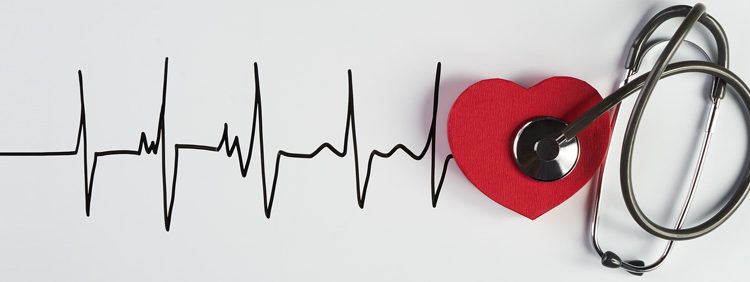People who are dealing with overwhelming emotions often experience a certain “fluttering” sensation in their chest. Depending on the symptoms present and how frequent this fluttering occurs, it may be as harmless as the butterflies that you feel in your stomach when you are in love, or it could be a life-threatening condition – one that may require medication, surgery, or an implanted device to control. This condition is called heart arrhythmia, or an irregular heartbeat. There are different types of arrhythmia with varying levels of severity, but the good news is, there are many treatment options as well. Thanks to innovations in medical science, heart arrhythmia treatment in Singapore can be done in hospitals and reputable clinics like the Cadence Heart Centre.
Sometimes, it is possible that a person may have arrhythmia but does not notice anything. This may be hard to imagine – along the level of how does someone with a potentially life-threatening condition fail to notice that something is wrong? – but it happens, and it happens a lot! To be fair, there are instances when a person feels his or her heart skipping a beat, then proceed to associate it with an action – increased heart rate during exercise then it slows down when relaxed or dozing off. Most people do not feel the need to go to the doctor because the symptoms they experience are pretty common; so many patients only learn that they have arrhythmia during a physical exam, when the doctor spots an irregular heartbeat pattern.
To understand heart arrhythmia better, this article will answer these frequently asked questions:
- What are the symptoms of arrhythmia?
- What causes irregular heartbeats?
- What are the arrhythmia risk factors that I should be aware of?
- How is arrhythmia diagnosed?
- What are the heart arrhythmia treatments in Singapore?
Let us begin with the question, “What are the symptoms of arrhythmia?”
Aside from the usual palpitations or fluttering, you might feel faint, dizzy/lightheaded, and weak if you have arrhythmia. This may be accompanied by an unexplainable pounding and/or pain in the chest cavity, shortness of breath, sweating, and blurry vision.
As mentioned above, arrhythmia might not show any symptoms at all, and even if you experience one or more of the symptoms listed here, it does not necessarily mean that you have a severe case of arrhythmia! You need to schedule a routine checkup with your doctor if you want to keep track of your heart’s health. If you have doubts or questions, you can reach out to the Cadence Heart Centre and we will be more than happy to assist you.
Next questions: what causes irregular heartbeats and what are the risk factors?
The human heart is designed to beat with a steady, relentless rhythm; however, when the normal rhythm is disrupted (i.e., the electrical signals that coordinate the heart’s beat malfunctions), the resulting heartbeat can be either too rapid (tachycardia) or a too slow (bradycardia). This is where problems come in.
Irregular heartbeats are caused by different reasons. It can be due to an existing medical condition (heart disease, diabetes, obesity, sleep apnea, high blood pressure, or thyroid disease), infection, imbalance of sodium or potassium in the blood, or an injury/bodily change that affects the blood flow. A person’s lifestyle plays a huge role in the development of irregular heartbeats, too – if you are always stressed, a smoker, or if you consume too much alcohol, caffeine, or illegal drugs and substances, you are likely to get arrhythmia.
The chance to acquire this condition also increases as a person grows old, and if a person has a family member or relative who has had irregular heartbeats. A polluted environment increases the risk as well.
How is arrhythmia diagnosed?
During a physical exam, your doctor may ask you questions about the symptoms and your medical history. Afterwards, he or she will conduct one of the tests below to confirm if you have arrythmia:
- Electrocardiogram: the sensors will detect the heart’s electrical activity, including the duration and timing of each electrical signal in the heartbeat.
- Echocardiogram: a soundwave-producing handheld device will be placed on your chest to reproduce images of the heart and its valves.
- Holter monitor: this portable device is work for one to two days to record the activity of your heart.
- Event recorder: this device has a button that you can press when a symptom occurs and it will detect/record the arrhythmia, to be further examined by the doctor later.
- Loop recorder: if the symptoms do not occur regularly, your doctor may implant an event recorder beneath the skin in the chest area to keep track of the electrical activity of the heart and to identify irregular heartbeats.
- Stress test: certain arrhythmias occur when a person engages in rigorous physical activities. The stress test will have patient use a stationary bike or walk on a treadmill in order to monitor the heart’s rate and blood pressure.
And last but not the least: what are the available heart arrhythmia treatments in Singapore today?
The treatment plan will depend on what type of arrhythmia a patient has. It could be one or a combination of the following:
- Medication (beta-blockers, Adenosine, Atropine, Digoxin, etc)
- Cardioversion, where electrical shock is used on the chest wall to bring back the regular rhythm of the heart
- Pacemaker, or a small, wired device that creates miniscule electrical signals and sends it to the heart muscle to maintain a normal and stable heart rate
- Implantable cardioverter defibrillator (ICD). This option is reserved for life-threatening forms of heart arrhythmia. The ICD has wires and sensors that constantly monitors that heart rhythm and when it senses that a fast and strange beat, it will send an electric shock to the heart muscle to prompt it to beat normally again. This intelligent device is also configured to identify the appropriate level of electrical energy that is needed to restore the heart’s normal rhythm.
- Surgery is done to correct atrial fibrillation, or the irregular and very fast beating of the heart that can cause blood clots, strokes, and heart failure.
Cadence Heart – Cardiologist & Cardiac Electrophysiologist in Singapore, Dr Devinder Singh
Mt Elizabeth Hospital,
3 Mount Elizabeth
#14-13 Mt Elizabeth Medical Centre, Singapore 228510
(65) 8318 9884
(65) 6369 8789
















